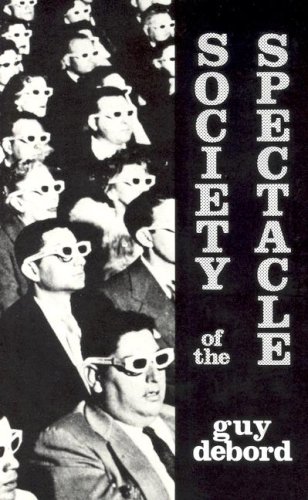The Internet and Politics: Citizens, Voters and Activists (2006)
Filed under book | Tags: · activism, civil society, internet, mass media, politics

Changes in the media landscape present new challenges for scholars interested in the relationship between the mass media and civil society. Notably, the explosion of the Internet in advanced industrial democracies and its more limited introduction in other types of regimes has provided new pathways for communication.
This volume explores the nature of the Internet’s impact on civil society, addressing the following central questions:
· Is the Internet qualitatively different from the more traditional forms of the media?
· Has the Internet demonstrated real potential to improve civil society through a wider provision of information, an enhancement of communication between government and citizen or via better state transparency?
· Alternatively, does the Internet pose a threat to the coherence of civil society as people are encouraged to abandon shared media experiences and pursue narrow interests?
· In authoritarian states, does the Internet function as a beacon for free speech or another tool for propaganda?
This book will be of interest to students and scholars of the Internet and civil society.
Editors Sarah Oates, Diana Marie Owen, Rachel Kay Gibson
Publisher Routledge, 2006
ISBN 041534784X, 9780415347846
228 pages
Keywords and phrases
Countryside Alliance, mass media, Yabloko, NGOs, Pew Research Center, social capital, Hizbollah, Ukraine Without Kuchma, United Russia, Cumbria, However, Ukrainska Pravda, cyber-terrorism, civil society, Republican Sinn Fein, Ukrainian, GreenNet, Ulster Loyalist, Russian parties, 2004 presidential election
More info (publisher)
More info (google books)
Guy Debord: Society of the Spectacle (1967–) [FR, EN, NL, GR, DE, IT, ES, TR, BR-PT, RO, SR, HU, LT, PL, CZ]
Filed under pamphlet | Tags: · activism, capitalism, consumerism, everyday, life, mass media, situationists, spectacle, spectatorship

“The Das Kapital of the 20th century. An essential text, and the main theoretical work of the situationists. Few works of political and cultural theory have been as enduringly provocative. From its publication amid the social upheavals of the 1960’s up to the present, the volatile theses of this book have decisively transformed debates on the shape of modernity, capitalism, and everyday life in the late 20th century.
Self-proclaimed leader of the Situationist International, Guy Debord was certainly responsible for the longevity and high profile of Situationist ideas, although the equation of the SI with Guy Debord would be misleading. Brilliant but autocratic, Debord helped both unify situationist praxis and destroy its expansion into areas not explicitly in line with his own ideas. His text The Society of the Spectacle remains today one of the great theoretical works on modern-day capital, cultural imperialism, and the role of mediation in social relationships.”
Publisher Buchet-Chastel, Paris, Nov 1967
175 pages
Wikipedia (EN)
La Société du Spectacle (French, 1967; HTML)
Society of the Spectacle (English, trans. Fredy Perlman and Jon Supak, 1970; HTML)
De spektakelmaatschappij (Dutch, trans. Jaap Kloosterman and René van de Kraats, 1976/2001, updated on 2019-11-8)
Η Κοινωνία του Θεάματος (Greek, trans. Panos Tsachageas and Nikos B. Alexiou, 1977, updated on 2019-11-8)
Die Gesellschaft des Spektakels (German, trans. Jean-Jacques Raspaud, 1978)
La societa dello spettacolo (Italian, trans. Paolo Salvadori, 1979)
Society of the Spectacle (English, trans. Donald Nicholson-Smith, 1994; HTML)
La sociedad del espectacul (Spanish, trans. Rodrigo Vicuña Navarro, 1995)
Gösteri toplumu ve yorumlar (Turkish, trans. Ayşen Ekmekçi and Okşan Taşkent, 1996, added on 2012-12-27)
A sociedade do espetaculo (BR-Portuguese, trans. Estela dos Santos Abreu, 1997)
Societatea spectacolului. Comentarii la societatea spectacolului (Romanian, trans. Ciprian Mihali and Radu Stoenescu, 1998)
La sociedad del espectacul (Spanish, trans. José Luis Pardo, 1999)
Η Κοινωνία του Θεάματος (Greek, trans. Sylvia, 2000, added on 2019-11-8)
Society of the Spectacle (English, trans. Ken Knabb, 2005; new ed., annotated, 2014, HTML, PDF, EPUB, added on 2019-11-12)
Društvo spektakla (Serbian, trans. Aleksa Golijanin, 2003/2012; HTML, added on 2017-7-27)
Spektákulum társadalma (Hungarian, trans. Miklós Erhardt, 2006, updated on 2019-11-8)
Spektaklio visuomenė (Lithuanian, 2006, added on 2019-11-8)
Społeczeństwo spektaklu oraz Rozważania o społeczeństwie spektaklu (Polish, trans. Mateusz Kwaterko, 2006, updated on 2019-11-8)
Společnost spektáklu (Czech, 2007, updated on 2019-7-21)
La sociedad del espectacul (Spanish, trans. Colectivo Maldeojo, 2009)
Societatea spectacolului (Romanian, trans. Cristina Săvoiu, 2011, added on 2015-11-29)
Raymond Williams: Television: Technology and Cultural Form (1974–)
Filed under book | Tags: · mass media, technological determinism, technology, television

“Twenty-first century TV offers an apparently endless stream of images, unfolding at high speed. We no longer watch individual programs but flick from channel to channel, absorbing a continuous flow of news, game shows, comedy, drama, movies, advertising and trailers. Television: Technology and Cultural Form was first published in 1974, long before the dawn of multi-channel TV, or the reality and celebrity shows that now pack the schedules. Yet Williams’ analysis of television’s history, its institutions, programs and practices, and its future prospects, remains remarkably prescient. TV offers an apparently endless engagement with a flood of Williams stresses the importance of technology in shaping the cultural form of television, while always resisting the determinism of Marshall McLuhan’s dictum that “the medium is the message”. If the medium really is the message, Williams asks, what is left for us to do or say? Williams argues that, on the contrary, we as viewers have the power to disturb, disrupt and to distract the otherwise cold logic of history and technology – not just because television is part of the fabric of our daily lives, but because new technologies continue to offer opportunities, momentarily outside the sway of transnational corporations or the grasp of media moguls, for new forms of self and political expression.”
First published by Fontana, London, 1974
Edited by Ederyn Williams
With a New Preface by Roger Silverstone
Publisher Routledge, 2003
ISBN 0415314569, 9780415314565
xvii+172 pages
Keywords and phrases
KQED, Fihn, Anacin, telegraphy, technological determinism, satellite television, Britain, Tony Hancock, Sesame Street, cable television, music-hall, Cathy Come Home, Masterpiece Theatre, analysis of flow, five channels, dumbshow, privatised, Golden Gate Bridge, Lord Lambton
PDF (updated on 2015-7-10)
Comment (0)
